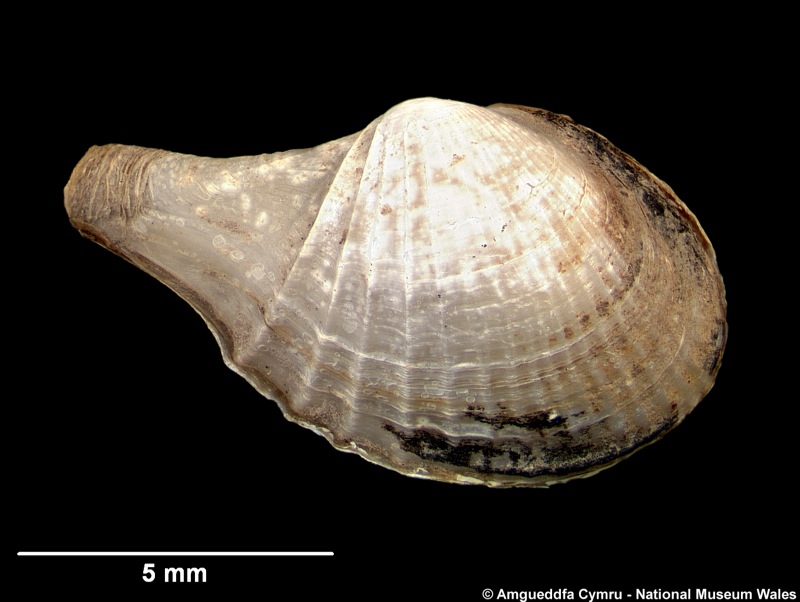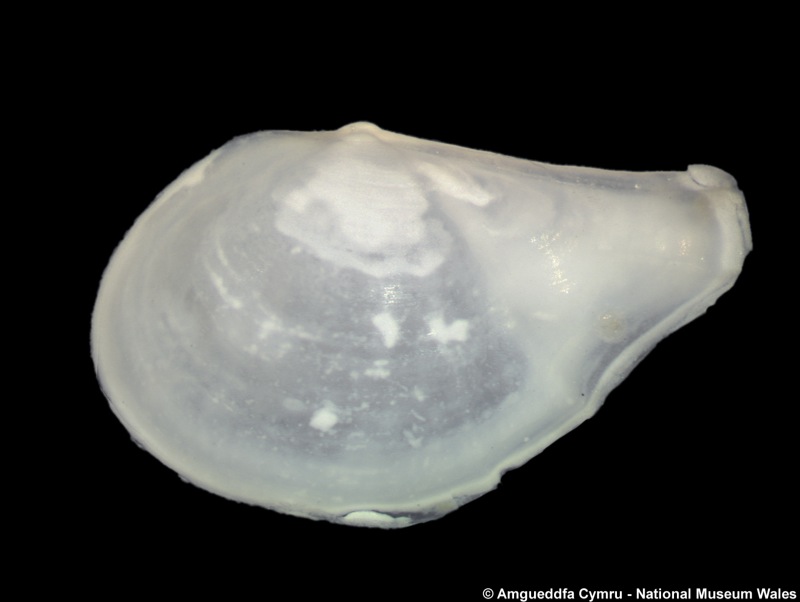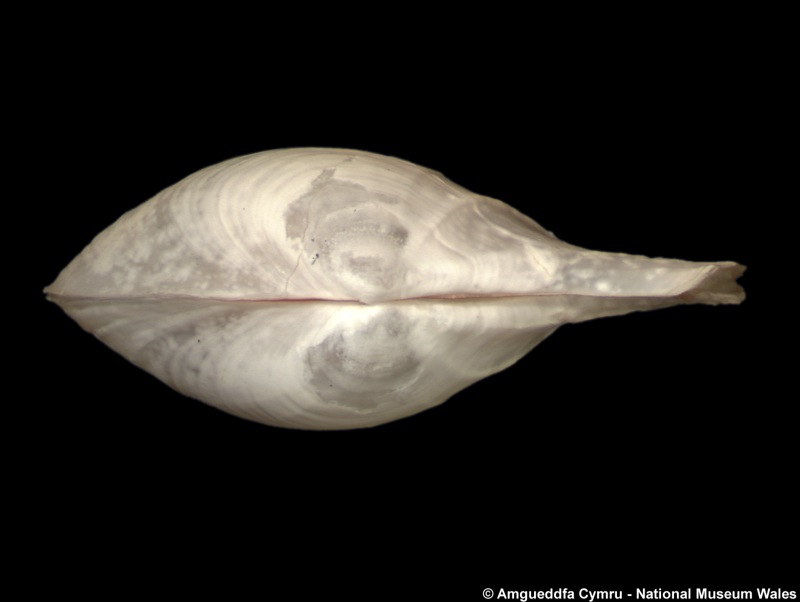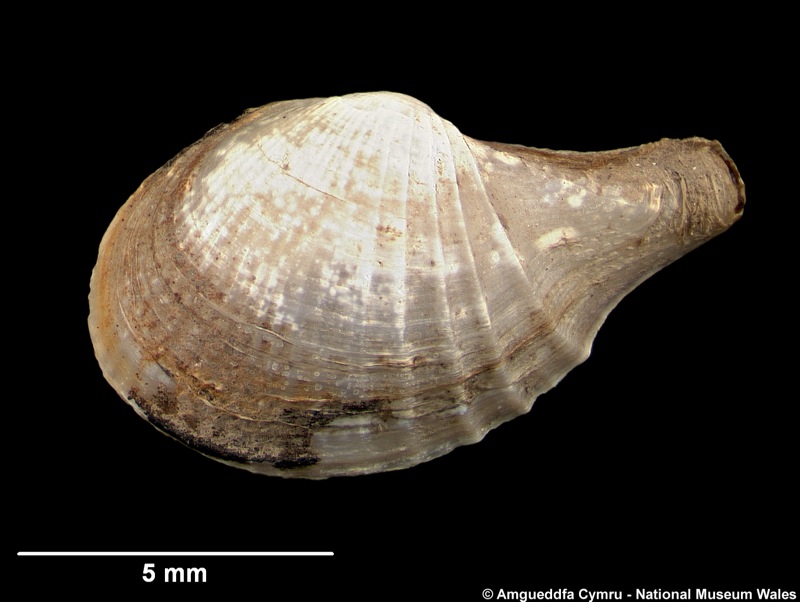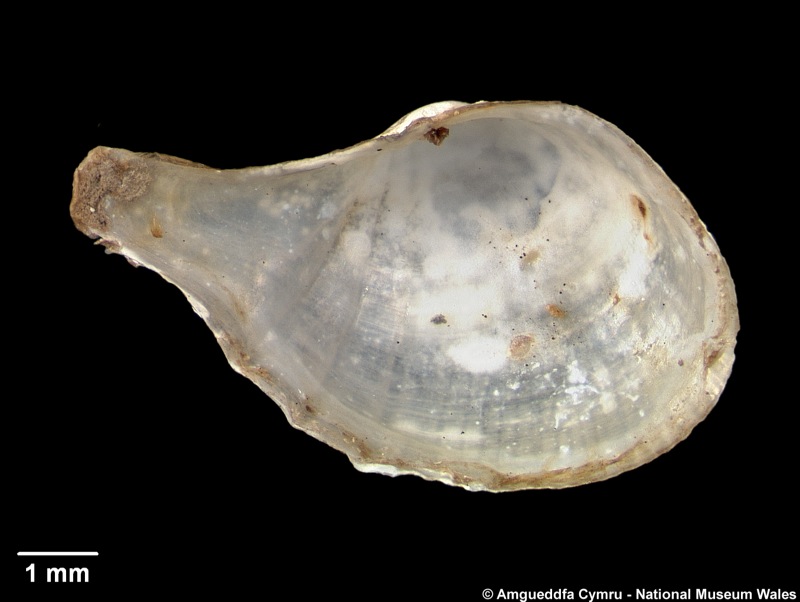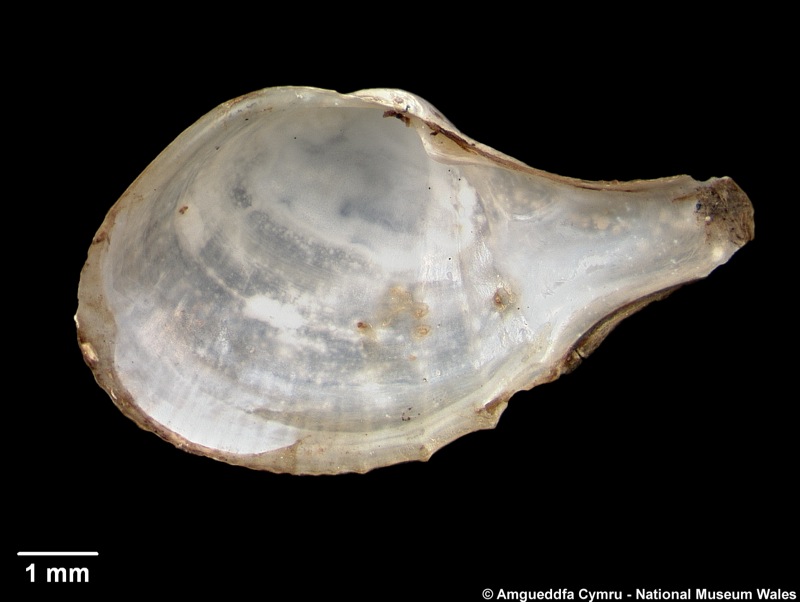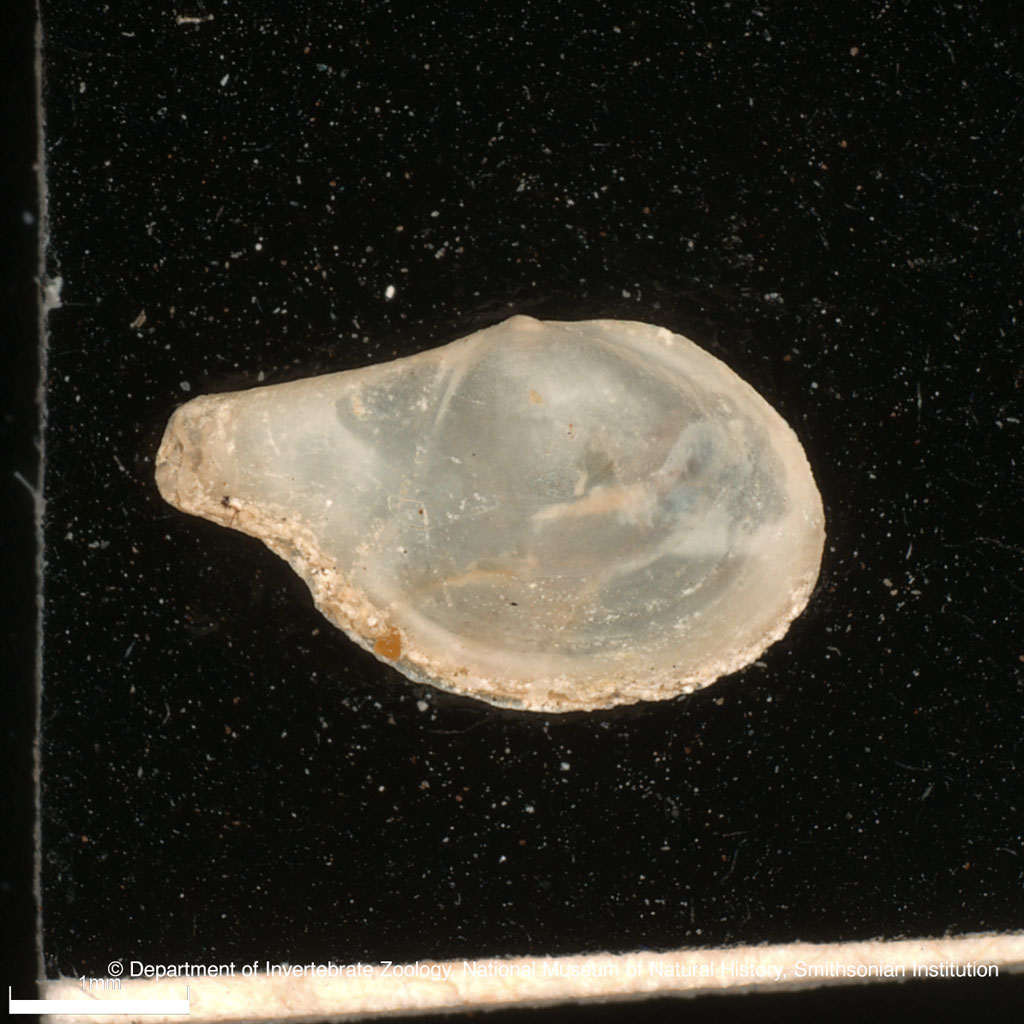Cardiomya costellata (Deshayes, 1835)
Verticordioidea : Cuspidariidae |
| Tebble name: | Cuspidaria (Cardiomya) costellata (Deshayes) |
| Smith & Heppell name: | Cardiomya costellata (Deshayes, 1833) |
To size:
To 10mm.
Shell Structure:
Thin, fragile.
Equivalve:
Slightly inequivalve, LV overlapping RV.
Equilateral:
Slightly inequilateral, beaks slightly behind the midline.
Tumidity:
Moderately inflated.
Outline:
Body of shell ovate; oblique, ventral extremity well in front of the line through the beaks; anterior dorsal margin sloping steeply, curved continuously with anterior and ventral margins. Rostrum short, narrowly triangular, slightly upturned, dorsal margin concave, ventral margin weakly concave corresponding to weak sulcus at junction of rostrum and body.
Sculpture:
Body of shell with about 20 radial riblets increasing in size posteriorly, the last demarcating the rostrum, concentric sculpture of fine lines and growth stops; Rostrum mostly smooth except for two thin ridges running from the umbos to the end of the rostrum.
Margin:
Margin dentate where largest ribs intersect edges.
Ligament:
Internal, on a very small chondrophore lying beneath the beaks.
Hinge:
Cardinal teeth absent; RV with a posterior triangular lateral flange with corresponding marginal extension in LV.
Pallial Musculature:
Indistinct.
Periostracum:
Thin except on rostrum where it is feebly lamellose, light brown.
Colour:
Greyish white.
Distribution & Ecology
Depth Range
Continental Shelf (to 200m)
Continental Margin Zone (200 - 500m)
Bathyal (500 - 2000m)

Additional Information & Related Species
Related Species
Verticordioidea : Cuspidariidae
References
Listed are literature citing Cardiomya costellata (Deshayes, 1835). Reference containing the species Type Description is highlighted.
|
Allen J A & Morgan R E 1981. The functional morphology of Atlantic deep water species of the families Cuspidariidae and Poromyidae (Bivalvia): an analysis of the evolution of the septibranch condition. Philosophical Transactions of the Royal Society of London Series B. 294: 413-546. |
|
Deshayes 1835. Expedition scientifique de Moree. Section des Sciences Physiques. Tome III. 1ere Partie. Zoologie. Premiere Section. Animauz vertebres, Mollusques et Polypiers.. Levrault, Paris. pp 81-203. |
|
Olabarria C. 2005. Patterns of bathymetric zonation of bivalves in the Porcupine Sea Bight and adjacent abyssal plain, NE Atlantic. Deep-Sea Research I. 52: 15-31. |
Resources
- Conchological Society
of Great Britain & Ireland
Provides resources for understanding, identifying, recording, and conserving molluscs - CLEMAM
Check List of European Marine Mollusca - MarLIN
The Marine Life Information Network for Britain and Ireland (MarLIN) provides information for marine environmental management, protection and education. It is a centre of excellence in spatially based and time-series marine biological information and supports good stewardship in the marine environment. - NBN Gateway
National Biodiversity Network's Gateway. Use it to explore UK biodiversity data, as contributed by participating data providers. - BivAToL
- MarBEF
- Malacological Society
- Unitas Malacologica
- Census of Marine Life
- MarBEF
MarBEF, a network of excellence funded by the European Union and consisting of 94 European marine institutes, is a platform to integrate and disseminate knowledge and expertise on marine biodiversity, with links to researchers, industry, stakeholders and the general public.


